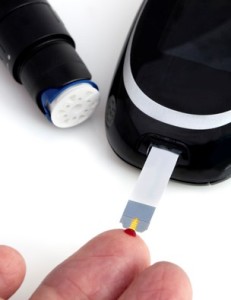Are Statins Dangerous?
Author: Dr. Stephen Chaney
 Several years ago I recall a cardiologist telling my class of first year medical students that statins were so beneficial that we should just put them in the water supply. He said it in a lighthearted manner, but I think he really believed it. [In actuality, statin drugs are so widely prescribed that they already are in the water supply of some major US cities (http://usatoday30.usatoday.com/news/nation/2008-03-10-drugs-tap-water_N.htm).]
Several years ago I recall a cardiologist telling my class of first year medical students that statins were so beneficial that we should just put them in the water supply. He said it in a lighthearted manner, but I think he really believed it. [In actuality, statin drugs are so widely prescribed that they already are in the water supply of some major US cities (http://usatoday30.usatoday.com/news/nation/2008-03-10-drugs-tap-water_N.htm).]
The Pros And Cons of Statins
When taken by people who have already had a heart attack, statins clearly save lives. However, as I documented in my eBook “The Myths of the Naysayers” (scroll down to Check It Out if you would like to learn how you can get that eBook for FREE) the benefits of statins are marginal at best in healthy people who have not yet had a heart attack. So are statins one of the risk factors for diabetes?
Statin Side Effects
In addition, statins have some significant side effects. For example, up to 5% of people taking statins develop muscle pain. For most people the muscle pain is merely an inconvenience, but in a small percentage of cases it can lead to fatal complications.
More concerning are the required label warnings that statins can lead to memory loss, mental confusion, high blood sugar and type 2 diabetes. In other words, they may not kill you, but they sure can make life miserable.
Because of the marginal benefits in healthy people and the multiple side effects, some experts are starting to step up and say that statins may be overprescribed. For example, Dr. Roger Blumenthal, MD, a professor and director of the Ciccarone Preventive Cardiology Center at Johns Hopkins recently said: “Statin therapy should not be approached like diet and exercise as a broadly based solution for preventing coronary heart disease. These are lifelong medications with potential, although rare, side effects, and physicians should only consider their use for those patients at greatest risk…”
Dr. Blumenthal made that statement a few years ago when we thought that statins only increased diabetes risk by 9-22%. The latest study suggests that statins may increase diabetes risk by as much as 46%. That, in my opinion, is a game changer.
Statins And Diabetes Risk?
 The idea that statins increase the risk of type 2 diabetes is not new. Previous studies have reported that statins increase the risk of diabetes anywhere from 9% to 22%. As a consequence, the FDA required that “increased risk of elevated blood sugar and developing type 2 diabetes” be added to the warning label on statin drugs starting in 2012.
The idea that statins increase the risk of type 2 diabetes is not new. Previous studies have reported that statins increase the risk of diabetes anywhere from 9% to 22%. As a consequence, the FDA required that “increased risk of elevated blood sugar and developing type 2 diabetes” be added to the warning label on statin drugs starting in 2012.
The authors of the current study (Cederberg et al., Diabetologia, DOI 10.1007/s00125-015-3528-5) felt that previous studies may have underestimated the true risk of developing diabetes because:
- Previous studies were often done with patient populations at very high risk of cardiovascular disease. In today’s world statin drugs are often prescribed for patients at moderate or low risk of cardiovascular disease. The authors felt that the effect of statins on diabetes risk might not be the same in these two populations.
- Previous studies relied on self-reported diabetes or fasting blood glucose levels as the criteria for classifying the study subjects as diabetic. In today’s world there are a wider array of diagnostic tests that are used to confirm a diagnosis of diabetes.
This study looked at the risk of developing type 2 diabetes associated with statin treatment over a 6-year period in a group of 8,749 Finnish men (aged 45-73 years) who were enrolled in the Metabolic Syndrome in Men (METSIM) study. That means that the men had metabolic syndrome (they were pre-diabetic), but none of them were yet diabetic at the beginning of the study. Other important characteristics of the study were:
- This was a healthy cross-section of the Finnish population. Only 24.5% of the study participants were using statin drugs.
- The diagnosis of diabetes was based on multiple criteria: fasting blood glucose levels, an oral glucose tolerance test, and hemoglobin A1c (a measure of blood sugar control over the last 6 weeks).
As you might suspect, the increased risk of developing diabetes during the 6-year trial was greatest for those who were older, more obese, less physically active and had more advanced metabolic syndrome at the beginning of the study. What was surprising, however, were the other conclusions of the study.
- Statin treatment increased the risk of developing type 2 diabetes by 46%, and the increased risk of developing diabetes directly correlated with the dose of the statin drug.
- Insulin sensitivity was decreased by 24% and insulin secretion was decreased by 12% in individuals on statin treatment. In layman’s terms that means the pancreas was 12% less able to release insulin and tissues in the body were 24% less able to respond to insulin. That’s a double whammy!
Even though this study is a significant improvement over previous studies, it does have some limitations of its own.
- The study population was exclusively white, Finnish men. The conclusions may not apply to other population groups.
- Simvastin (Zocor) and atorvastatin (Lipitor) were the most widely used statin drugs in this study (84% of the study participants taking statins were on one of these two drugs). These two statins clearly increased the risk of developing diabetes in a dose-dependent manner. There were not enough subjects on the other statin drugs to evaluate their effect on diabetes risk, but previous studies have suggested that other statins may be less prone to increase diabetes risk.
Should You Take Statins If you are Diabetic or Pre-Diabetic?
 Let’s start by identifying the symptoms of metabolic syndrome or pre-diabetes. They are:
Let’s start by identifying the symptoms of metabolic syndrome or pre-diabetes. They are:
- Abdominal obesity (waist size of greater than 35” for women & 40” for men)
- Slightly elevated triglycerides (greater than 150 mg/dl)
- Low HDL cholesterol (less than 50 mg/dl for women and 40 mg/dl for men)
- Slightly elevated blood pressure (greater than 130/85
- Slightly elevated blood sugar (greater than 100 mg/dl fasting blood glucose)
If you have three or more of these symptoms, you likely have metabolic syndrome or pre-diabetes.
The medical profession and the pharmaceutical industry are circling their wagons and assuring us that the benefits of taking statins clearly outweigh the risks – even if you are diabetic or pre-diabetic. I’m not so sure
The problem is that the benefits of statin therapy in healthy individuals who have not had a heart attack are modest at best. This sets up a real “Catch 22” situation. Diabetes and pre-diabetes increase the risk of heart disease, so current guidelines recommend that statin drugs should be prescribed for individuals who are pre-diabetic or diabetic. However, we now know that those very same statin drugs increase the risk of you becoming diabetic if you are already pre-diabetic. Because they decrease insulin production and increase insulin resistance they may also make your diabetes worse if you are already diabetic, but that has not been directly tested.
That is concerning because diabetes can lead to very serious complications such as neuropathy (numbness in the extremities), kidney disease & kidney failure, high blood pressure and stroke, and cataracts & glaucoma. Of course, you can always use diabetes medications to counteract the diabetes-enhancing effect of the statins, but those medications also have serious side effects. The pharmaceutical merry-go-round continues!
Are There Alternatives For Reducing the Risk Of Heart Disease?
 If statins are only modestly effective at reducing the risk of heart disease in otherwise healthy individuals and they significantly increase the risk of developing diabetes, it is perhaps prudent to ask whether there are alternative, non-drug approaches that can significantly reduce your cholesterol levels and allow you to avoid statins altogether?
If statins are only modestly effective at reducing the risk of heart disease in otherwise healthy individuals and they significantly increase the risk of developing diabetes, it is perhaps prudent to ask whether there are alternative, non-drug approaches that can significantly reduce your cholesterol levels and allow you to avoid statins altogether?
According to the National Heart Lung & Blood Institute the answer to that question is a resounding yes! They call it Therapeutic Lifestyle Change or TLC (http://www.nhlbi.nih.gov/health/resources/heart/cholesterol-tlc). The TLC recommendations are:
- Eat less than 7 percent of your daily calories from saturated fat
- Eat less than 200 mg a day of cholesterol
- Get only 25–35 percent of daily calories from total fat (this includes saturated fat calories)
- Other diet options you can use for more LDL lowering are:
- Add 2 grams per day of plant stanols or sterols
- Add 10–25 grams per day of soluble fiber
- Consume only enough calories to reach or maintain a healthy weight
- In addition, you should get at least 30 minutes of a moderate intensity physical activity, such as brisk walking, on most, and preferably all, days of the week.
The NHLB Institute recommends that the TLC approach always be tried first, and that statins only be used if the lifestyle approach fails – a message that seems to have gotten lost in the translation in many doctor’s offices.
I have also discussed some natural alternatives in my previous articles such as “Does An Apple A Day Keep Statins Away?” (https://chaneyhealth.com/healthtips/apple-day-keep-statins-away/) and “Is Fish Oil Really Snake Oil?” (https://chaneyhealth.com/healthtips/fish-oil-really-snake-oil/).
What Should You Do?
Perhaps it is time to have a serious discussion with your doctor about following the National, Heart Blood & Ling Institute’s TLC recommendations – either as an alternative to statins or as something that will allow your doctor to reduce the amount of statins that your need to take.
I also recommend that you make lots of fresh fruits and vegetables and either oily fish or fish oil supplements part of your regular diet.
The old professor is just like the rest of you. My cholesterol gets a bit high from time to time and my doctor suggests going on a statin. Instead I ramp up my exercise, watch what I eat a bit more carefully, and use a supplementation program that includes stanols, sterols and omega-3 fatty acids.
My cholesterol gets back to where it is supposed to be. My doctor is happy, and I am happy.
The Bottom Line
- The news about statin drugs keeps getting worse. Not only are they only marginally effective in healthy people who have not yet had a heart attack, but the latest study suggests that they may increase the risk of developing diabetes by up to 46%.
- That is concerning because the complications of diabetes can be quite serious, and diabetes drugs have side effects of their own.
- There are alternatives. The National Heart, Blood & Lung Institute recommends that a Therapeutic Lifestyle Change (TLC) program (http://www.nhlbi.nih.gov/health/resources/heart/cholesterol-tlc) be tried before starting on statin drugs. This may allow you to reduce the dose or avoid statin drugs completely.
- In addition to the TLC program I recommend lots of fresh fruits and vegetables, oily fish or fish oil supplements, and a supplement that provides the TLC-recommended 2,000 mg of plant stanols and sterols.
If you have been prescribed statin drugs, it may be time to make a serious commitment to the TLC lifestyle change and have a discussion with your physician about reducing or eliminating your statins. This is especially true if you are already pre-diabetic or diabetic.
These statements have not been evaluated by the Food and Drug Administration. This information is not intended to diagnose, treat, cure or prevent any disease.
